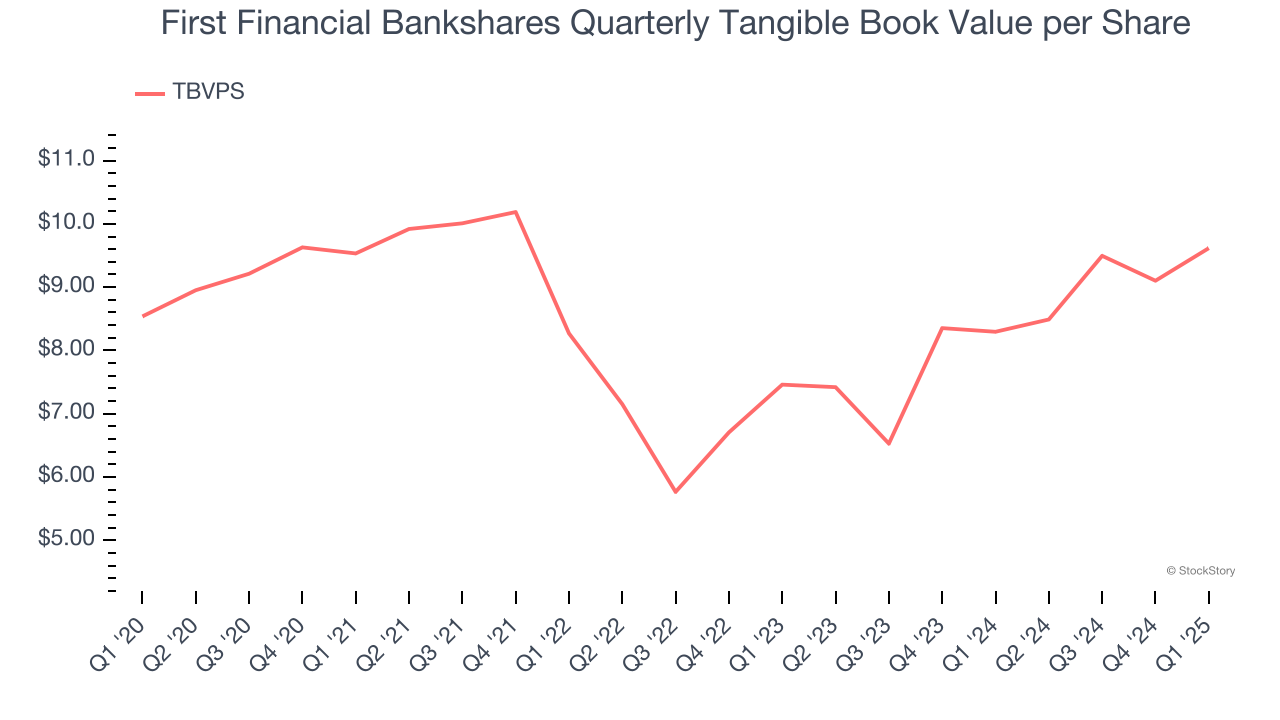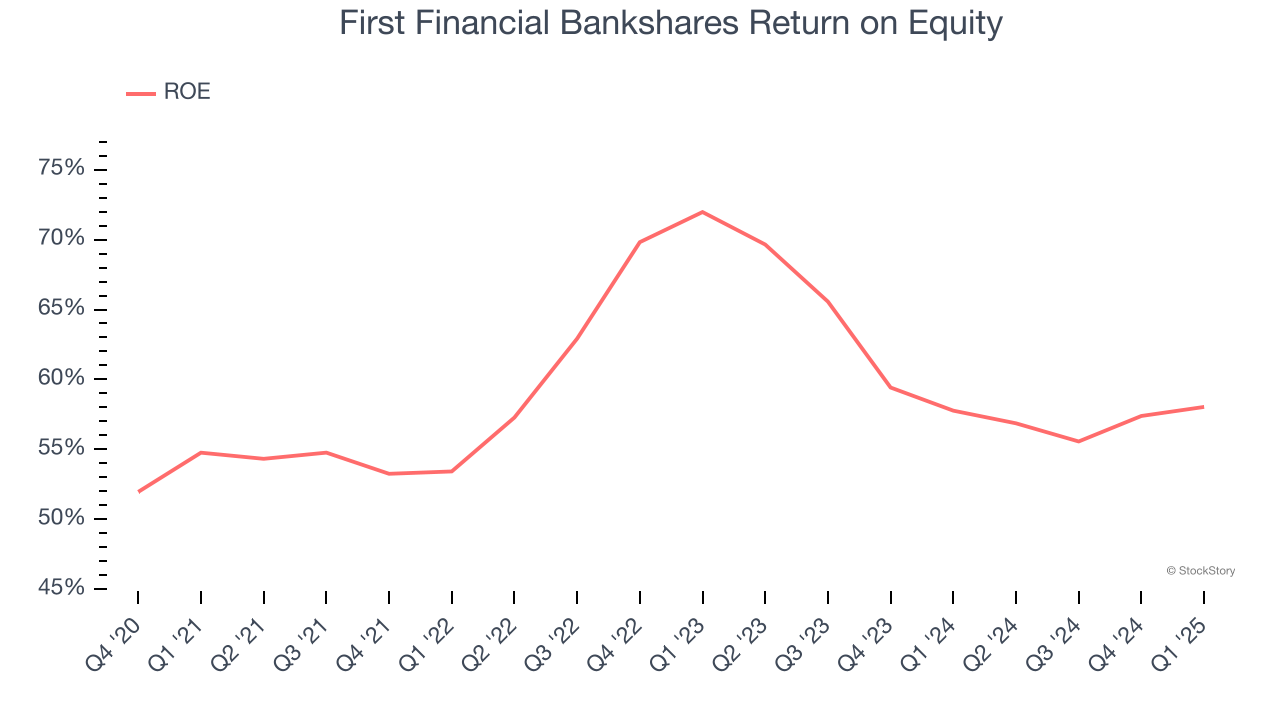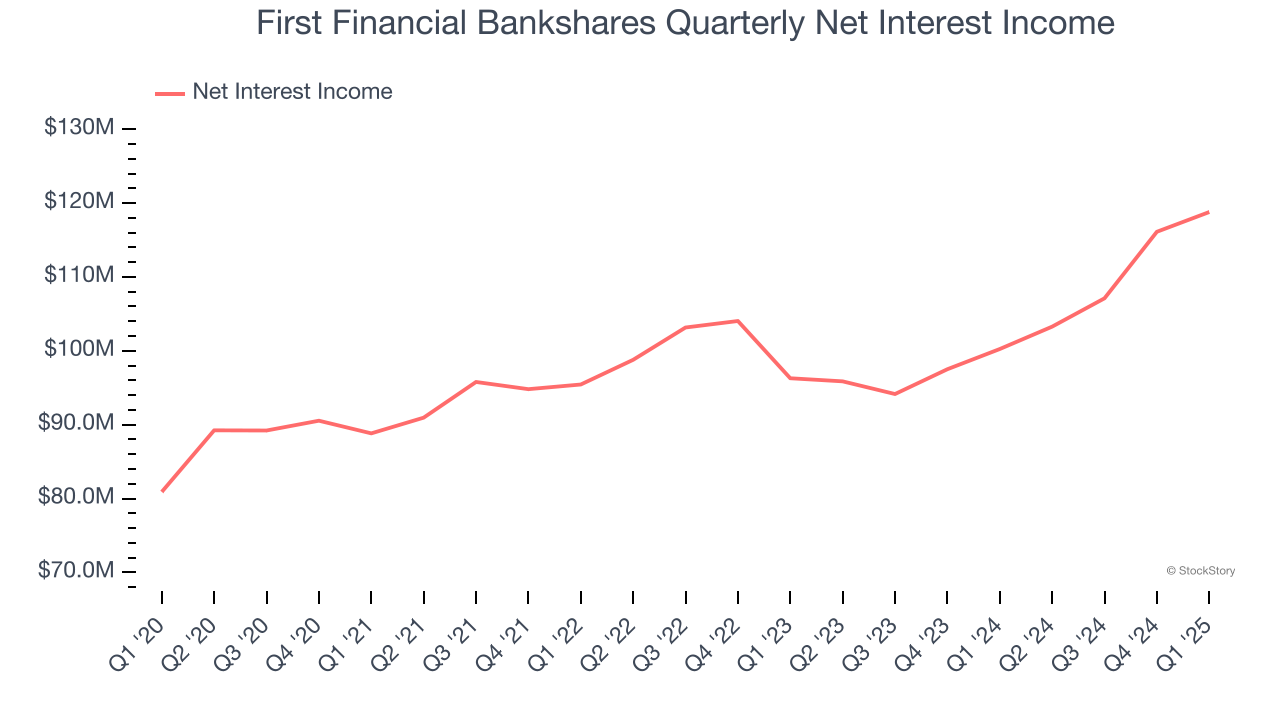
Over the past six months, First Financial Bankshares’s shares (currently trading at $37.48) have posted a disappointing 9% loss while the S&P 500 was flat. This may have investors wondering how to approach the situation.
Given the weaker price action, is now a good time to buy FFIN? Find out in our full research report, it’s free.
Why Does FFIN Stock Spark Debate?
With roots dating back to 1890 and a network spanning over 70 locations across the Lone Star State, First Financial Bankshares (NASDAQ:FFIN) is a Texas-focused regional bank providing commercial banking, trust services, and wealth management to communities across the state.
Two Things to Like:
1. Projected TBVPS Growth Is Remarkable
Because banks generate earnings primarily through borrowing and lending, they’re valued based on their balance sheet strength and ability to compound book value (another name for shareholders’ equity). Specifically, we look at tangible book value per share, or TBVPS, which represents the real, liquid net worth of a bank.
Over the next 12 months, Consensus estimates call for First Financial Bankshares’s TBVPS to grow by 16.5% to $11.20, elite projection.

2. Stellar ROE Showcases Lucrative Growth Opportunities
Return on equity, or ROE, tells us how much profit the bank generates for each dollar of shareholder equity, a key funding source for banks. Over a long period, banks with high ROE tend to compound shareholder wealth faster through retained earnings, buybacks, and dividends.
Over the last five years, First Financial Bankshares has averaged an ROE of 14.8%, exceptional for a company operating in a sector where the average shakes out around 7.5% and those putting up 15%+ are greatly admired. This shows First Financial Bankshares has a strong competitive moat.

One Reason to be Careful:
Net Interest Income Points to Soft Demand
Net interest income commands greater market attention due to its reliability and consistency, whereas non-interest income is often seen as lower-quality revenue that lacks the same dependable characteristics.
First Financial Bankshares’s net interest income has grown at a 5.6% annualized rate over the last four years, worse than the broader banking industry.

Final Judgment
First Financial Bankshares’s positive characteristics outweigh the negatives. With the recent decline, the stock trades at 3× forward P/B (or $37.48 per share). Is now the right time to buy? See for yourself in our in-depth research report, it’s free.
High-Quality Stocks for All Market Conditions
Donald Trump’s victory in the 2024 U.S. Presidential Election sent major indices to all-time highs, but stocks have retraced as investors debate the health of the economy and the potential impact of tariffs.
While this leaves much uncertainty around 2025, a few companies are poised for long-term gains regardless of the political or macroeconomic climate, like our Top 5 Growth Stocks for this month. This is a curated list of our High Quality stocks that have generated a market-beating return of 183% over the last five years (as of March 31st 2025).
Stocks that made our list in 2020 include now familiar names such as Nvidia (+1,545% between March 2020 and March 2025) as well as under-the-radar businesses like the once-micro-cap company Kadant (+351% five-year return). Find your next big winner with StockStory today.
